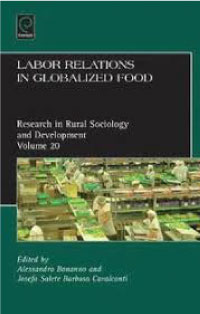State and regulation of labor relations in the sugarcane fields of Brazil
In: BONANNO, Alessandro. CAVALCANTI, Josefa Salete Barbosa. (Org.). Labor Relations in Globalized Food. 1ed.Wagon Lane, Bingley, BD16 1WA: Emerald Group Publishing Limited, 2014, v. 20, p. 167-191.
Maria Aparecida de Moraes Silva; Marilda Aparecida de Menezes; Jadir Damião Ribeiro.
DOI: http://dx.doi.org/10.1108/S1057-192220140000020007
The objective of this chapter is to analyse labor condictions in the sugarcane industry of the state of São Paulo, Brazil. The development of this sector has been characterized by the intensification of harvest mechanization promoted by the State in an attempt to foster capital accumulation. A number of authors advanced the thesis that Brazil is undergoing a process of reprimarization of the economy under globalization. This process refers to the development of large-scale primary sectors production for exportation that includes commodities such sugar, soy, meats, and minerals among others. Regarding the regulation of labor relations, there is a tendency to apply international standards characterized by tripartite representation, that is, through the participation of the state, representatives of employers, and workers. A relevant instance is represented by the 2009 National Commitment to Improve Working Conditions in Sugarcane.


